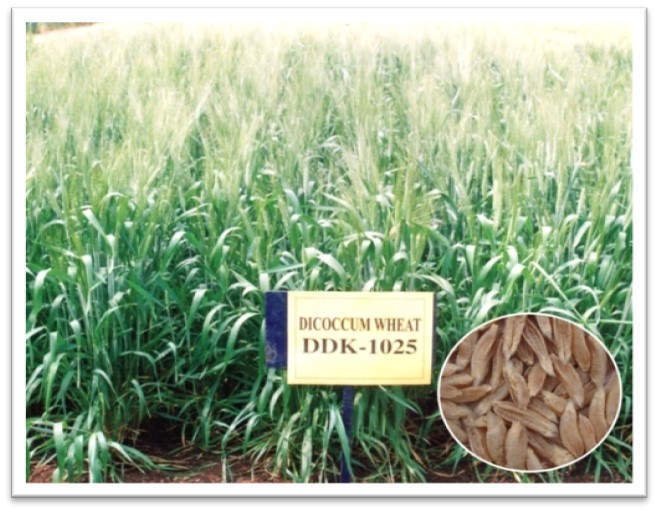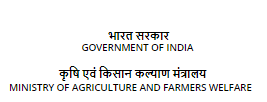DDK-1025 (Wheat)

Background:
Peninsular zone is unique in cultivation with respect to dicoccum wheat cultivation. Its cultivation is restricted to peninsular zone and parts of southern hill zone. It is nutritionally rich because of presence of higher protein content, more dietary fiber, resistant starch and high therapeutic value. The food prepared out of this wheat has high satiety value, unique flavor and good keeping quality. The cultivation of this wheat has history, which is the first cultivated variety in India and carries most of the wild species traits like tall and lodging type, non-free threshability of seeds and poor productivity and most suitability to low input condition. The dicoccum wheat growing farmers predominantly cultivated local types. This necessitated the development of high yielding dicoccum wheat varieties.
Technology Details:
To improve the productivity of the most neglected species and to improve yield and lodging tolerance, semi dwarf variety DDK 1025 was developed. It is most suitable to timely sown irrigated condition of Peninsular India. Because of semi-dwarf nature it is tolerant to lodging and high yielding and early maturing to local types. It is best suitable for both chapati and macaroni preparation.
Name of crop DDK-1025 (dicoccum wheat)
Parentage DDK-1013 / DDK-1001 // 278-13
Year of release
(CSC on CSN & RVAC) 2006
Gazette Notification Details 599 (E) 25-04-2006
Yield (t/ha) 45 - 46 q/ha
Season November Ist Fortnight
Condition Irrigated Condition
Area of adoption Peninsular zone (Karnataka and Maharashtra)
Maturity Group 105 to 110 days
Reaction to major diseases and insects Resistant to diseases, tolerance to heat stress
Other remarks Excellent grain quality traits viz., bold seeds, higher protein and sedimentation value, good bread, bakery and pasta making quality, nutrition and therapeutic value, Semolina, Chapati, Dhalia, Macaroni and Pasta products, bread and bakery products.


